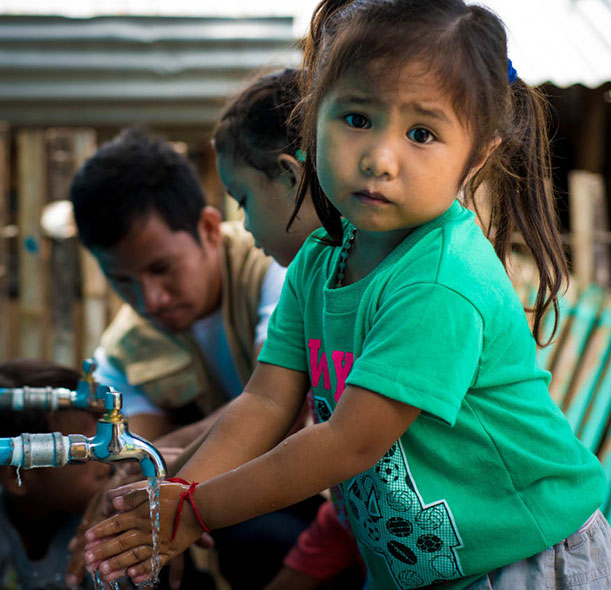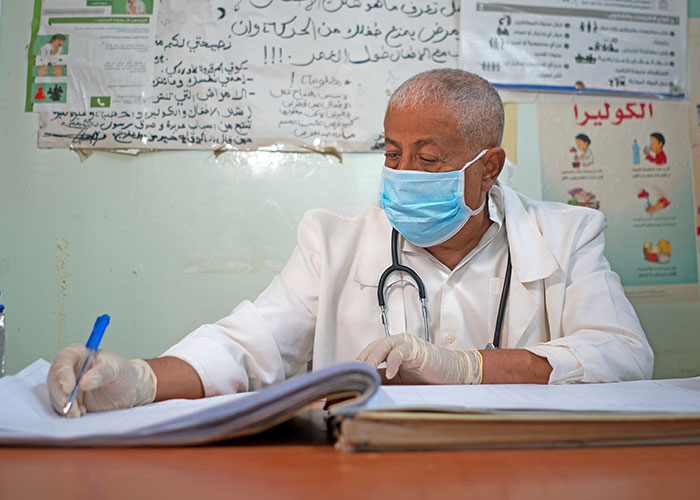- Poor sanitation, overcrowding and a lack of access to healthcare and clean water make informal and refugee settlements a ticking time bomb warns Action Against Hunger.
- Action Against Hunger UK welcomes the announcement of a UN response plan to Covid-19 but warns it must be integrated into wider emergency responses.
Alongside the immediate threat the virus poses to the health of communities, Action Against Hunger is also extremely concerned at how restrictions on movement might impact essential humanitarian deliveries of food and water.
Juliet Parker, Director of Operations at Action Against Hunger UK, said:
“Covid -19 has now been confirmed in most of the 47 countries where we are operational. They have been behind the curve of China and Europe, but evidence would suggest that some appear to be catching up. When you look at the devastation it has wreaked in so-called developed countries, the damage that could be done in fragile or conflict contexts could be devastating.
“We are particularly concerned about how Covid-19 will impact on refugee communities who are already struggling under the burden of limited resources, overcrowding and a lack of access to even basic healthcare. Solutions like social distancing simply aren’t possible when you are sharing facilities with thousands or even tens of thousands of people.
“It is only a matter of time before we see a major outbreak in one of these settings, be it Cox’s Bazar or Dadaab. They are a ticking time bomb and I fear the consequences of an outbreak will be far more grave than what we are witnessing domestically.
“For many of the communities we are serving, water is blue gold. They rely on our ability to deliver clean water through trucking and it isn’t clear if these deliveries will be impacted. If good hygiene is the key to defeating Covid-19, we need to be ramping up our activity and delivering more water, not suspending it.”
In Bangladesh’s Cox’s Bazar, more than 855,000 people are living in 34 makeshift camps. The camps are so crowded that it is estimated that 40,000 people occupy each square kilometre. To put this figure into context, the population density of Greater London is approximately 4,500 per square kilometre. Health facilities are already stretched and many people rely on public hygiene infrastructure – toilets, showers and waterpoints to wash. To compound the situation, there is limited access to soap in the camps, making handwashing and hygiene responses extremely challenging.
Juliet Parker on the UN’s announcement of a Covid-19 Humanitarian Response Plan:
“Whilst we welcome the UN’s announcement of a Covid-19 response plan, we have to be realistic about the scale of the existing challenges that vulnerable communities are facing. From the locust swarms that are crippling large swathes of East Africa to the displaced communities who have fled the war in Syria and are reliant on food and water deliveries from agencies like ours. Covid-19 is heaping more misery on an already desperate scenario.
“This is a global pandemic and we need a truly global response. Governments must outline what support will be in place for humanitarian agencies to ensure we can not only respond to this crisis but to continue to respond to a growing hunger crisis which has left millions of people with lower immunity to illness due to poor nutrition.
“For many of the communities we serve, we are the only healthcare provider they have access to, their only source of clean water and their only means of putting food on the table. And yet we are struggling to comprehend how the raft of restrictions that are being rolled out will impact on our operations.
“We need world leaders to respond to this crisis in unison and provide some clarity on what support or exemptions will be made available to INGOs to ensure we can continue our life-saving work”
For more information or to arrange an interview, please contact Anthony Gale at [email protected] or call 0208 293 6190.



